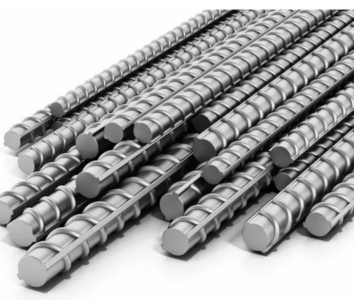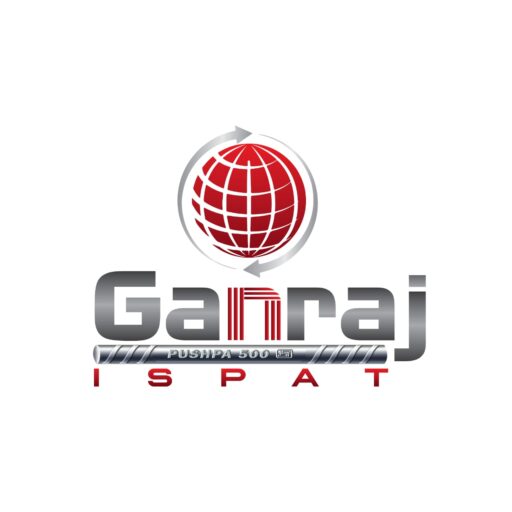
TMT steel bars, or Thermo-Mechanically Treated bars, are a crucial component in the construction industry, providing strength and flexibility to concrete structures. In India, the TMT steel grades are governed by the Indian steel standards, primarily defined under IS 1786:2008. These standards specify the strength, ductility, and other critical properties of steel bars used for reinforcing concrete in both residential and commercial buildings.
In this blog, we’ll dive into the different TMT steel grades as per Indian standards, their structural applications, and the role of these bars in ensuring the safety and durability of buildings.
What Are TMT Steel Grades?
TMT steel grades refer to the classification of steel bars based on their tensile strength and other physical properties. The strength of a steel bar is measured in terms of its tensile strength, which is the maximum stress the material can withstand before breaking or deforming. In the context of TMT steel grades, the tensile strength is classified according to different grades such as Fe415, Fe500, Fe550, and Fe500D.
The grades of TMT bars are primarily determined by the amount of carbon content, the manufacturing process, and the type of treatment the steel undergoes.
TMT Steel Grades According to IS 1786:2008
The Indian Standard IS 1786:2008 outlines the specifications for TMT steel bars used in construction. This standard ensures that the TMT bars used in construction projects comply with quality benchmarks and provide the necessary strength and durability. Let’s take a look at the different TMT steel grades and their features according to these standards:
1. Fe415
Fe415 grade steel bars are the most common type of steel bars used in construction projects. The “Fe” stands for iron, and the number 415 refers to the minimum tensile strength of 415 MPa (megapascals). Fe415 TMT bars are primarily used for low to medium-strength applications in residential buildings, small commercial buildings, and infrastructure projects.
Key Features:
- Tensile strength of 415 MPa.
- Ductility: These bars have good flexibility and can bend without breaking, making them suitable for earthquake-resistant construction.
- Cost-effective: A more affordable option compared to higher-grade bars, making it ideal for small to medium-sized residential projects.
2. Fe500
The Fe500 grade TMT bars are commonly used for medium to large-scale construction projects. They have a tensile strength of 500 MPa and offer better strength and durability than Fe415 bars. These bars are ideal for projects like bridges, dams, and other infrastructure that require high strength. Fe500 is suitable for civil construction steel used in foundations, beams, and columns in residential buildings.
Key Features:
- Tensile strength of 500 MPa.
- High bendability and good corrosion resistance.
- Often used in commercial construction and mid-to-high-rise residential buildings.
3. Fe500D
Fe500D TMT bars are a more advanced version of Fe500 bars, with enhanced ductility and earthquake-resistant properties. The “D” in Fe500D signifies “ductile,” which makes these bars more flexible, allowing them to bend without breaking. These bars are ideal for use in high-seismic areas where the building’s structural integrity could be at risk due to earthquakes.
Key Features:
- Tensile strength of 500 MPa, with improved ductility.
- Earthquake-resistant TMT bars, ideal for areas with frequent seismic activity.
- Suitable for high-rise buildings, industrial structures, and areas prone to earthquakes.
4. Fe550
Fe550 TMT bars are designed for high-strength applications. With a tensile strength of 550 MPa, they are ideal for large-scale projects such as commercial buildings, bridges, flyovers, and industrial infrastructure. Fe550 bars are particularly useful in situations where the structure needs to bear heavy loads and significant stress. Due to their high strength, Fe550 bars are often used for the construction of tall buildings and large infrastructure projects.
Key Features:
- Tensile strength of 550 MPa, ensuring superior strength and durability.
- Resistant to high loads and stress in large-scale commercial and industrial projects.
- Often used in the construction of high-rise buildings, bridges, and heavy infrastructure.
5. Fe550D
Fe550D is the highest-grade TMT bar available, offering the ultimate in strength and flexibility. It has a tensile strength of 550 MPa and enhanced ductility, making it suitable for areas that require exceptional reinforcement. This grade is primarily used in large-scale infrastructure projects like bridges, flyovers, and high-rise buildings, particularly in areas prone to severe seismic activity.
Key Features:
- Tensile strength of 550 MPa with improved ductility for earthquake resistance.
- Perfect for heavy-duty projects, including flyovers and bridges.
- Corrosion-resistant steel that ensures long-lasting durability in harsh environments.
Importance of TMT Steel Grades in Construction
The choice of TMT steel grade plays a significant role in determining the overall strength, safety, and durability of a structure. The right grade ensures that the building can withstand various stresses, environmental conditions, and forces, including earthquakes, high winds, and heavy loads. Here are some of the key reasons why TMT steel grades are important for construction:
- Structural Safety: The right TMT grade provides the necessary tensile strength to prevent structural damage, especially in the event of natural calamities like earthquakes.
- Compliance with Building Codes: TMT bars conforming to IS 1786:2008 ensure that the construction meets the required safety and structural standards as per Indian building codes.
- Durability and Longevity: High-quality TMT bars, such as Fe500D and Fe550, offer superior resistance to corrosion and environmental damage, ensuring that the structure remains safe and durable for decades.
- Cost Efficiency: Selecting the appropriate grade can help balance safety and cost, allowing builders to choose the right material for each specific application.
Conclusion
Choosing the right TMT steel grade for your construction project is crucial for ensuring the safety, strength, and longevity of the structure. Whether you opt for Fe415 for small projects, Fe500 for medium-scale buildings, or Fe500D and Fe550 for high-rise buildings and infrastructure, each grade has its own set of benefits tailored to different construction needs. By adhering to Indian steel standards like IS 1786:2008, builders can ensure that the materials used meet the necessary quality and safety benchmarks.
For more details and to purchase high-quality TMT steel bars that comply with BIS standards, contact us at:
Plot No: A-3, Nagar-Pune Road, Supa Parner Industrial Area, Supa, Parner, Ahmednagar – 414003.
Phone: +91 9766173352
Email:sales@ganrajispat.com
Visit our website: www.pushpasteel.com

Recent Comments